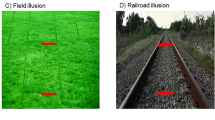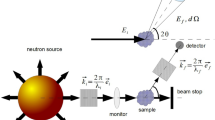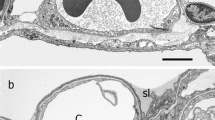Abstract
Two experiments investigate whether native speakers of French can use a noun’s phonological ending to retrieve its gender and that of a gender-marked element. In Experiment 1, participants performed a gender decision task on the noun’s gender-marked determiner for auditorily presented nouns. Noun endings with high predictive values were selected. The noun stimuli could either belong to the gender class predicted by their ending (congruent) or they could belong to the gender class that was different from the predicted gender (incongruent). Gender decisions were made significantly faster for congruent nouns than for incongruent nouns, relative to a (lexical decision) baseline task. In Experiment 2, participants named pictures of the same materials as used in Experiment 1 with noun phrases consisting of a gender-marked determiner, a gender-marked adjective and a noun. In this Experiment, no effect of congruency, relative to a (bare noun naming) baseline task, was observed. Thus, the results show an effect of phonological information on the retrieval of gender-marked elements in spoken word recognition, but not in word production.
Similar content being viewed by others
References
Badecker W., Miozzo M., Zanuttini R. (1995) The two-stage model of lexical retrieval: Evidence from a case of anomia with selective preservation of grammatical gender. Cognition 57: 193–216
Barbaud P., Ducharme C., Valois D. (1981) L’usage du genre en canadien-français: Une étude syntaxique et sociolinguistique de la féminisation des noms à initiale vocalique [The usage of gender in Canadian-French: A syntactic and sociolinguistic study of the feminisation of vowel-initial nouns]. Recherches Linguistiques à Montréal 17: 1–42
Bock J.K., Miller C.A. (1991) Broken agreement. Cognitive Psychology 23: 45–93
Caramazza A., Miozzo M. (1997) The relation between syntactic and phonological knowledge in lexical access: Evidence from the ‘tip-of-the-tongue’ phenomenon. Cognition 64: 309–343
Colé P., PynteJ. Andriamamonjy P. (2003) Effect of grammatical gender on visual word recognition: Evidence from lexical decision and eye movement experiments. Perception & Psychophysics 65: 407–419
Cubelli R., Lotto L., Paolieri D., Girelli M., Job R. (2005) Grammatical gender is selected in bare noun production: Evidence from the picture–word interference paradigm. Journal of Memory and Language 53: 42–59
Cutting J.C., Ferreira V.S. (1999) Semantic and phonological information flow in the production lexicon. Journal of Experimental Psychology: Learning, Memory, and Cognition 25(318–344): 25, 318–344
Damian M.F., Martin R.C. (1999) Semantic and phonological codes interact in single word production. Journal of Experimental Psychology: Learning, Memory, and Cognition 25: 345–361
Dell G.S. (1986) A spreading-activation theory of retrieval in sentence production. Psychological Review 93: 283–321
Dell G.S., Reich P.A. (1981) Stages in sentence production: An analysis of speech error data. Journal of Verbal Learning and Verbal Behavior 20: 611–629
Desrochers A., Paivio A. (1990) Le phonème initial des noms inanimés et son effet sur l’identification du genre grammatical [The initial phoneme of inanimate nouns and its effect on the identification of grammatical gender]. Revue Canadienne de Psychologie 44: 44–57
Desrochers A., Paivio A., Desrochers S. (1989) L’effet de la fréquence d’usage des noms inanimés et de la valeur prédictive de leur terminaison sur l’identification du genre grammatical [The effect of frequency of usage of inanimate nouns and the predictive value of their ending on the identification of grammatical gender]. Revue Canadienne de Psychologie 43: 62–73
Ferreira V.S., Griffin Z.M. (2003) Phonological influences on lexical (mis)selection. Psychological Science 14: 86–90
Franck J., Vigliocco G., Antón-Méndez I., Collina S., Frauenfelder U.H. (2008) The interplay of syntax and form in sentence production: A cross-linguistic study of form effects on agreement. Language and Cognitive Processes 23: 329–374
Hartsuiker, R. J., Corley, M., & Martensen, H. (2005). The lexical bias effect is modulated by context, but the standard monitoring account doesn’t fly: Related beply to Baars et al. (1975). Journal of Memory and Language, 52, 58–70.
Holmes V.M., Dejeandela Bâtie B. (1999) Assignment of grammatical gender by native speakers and foreign learners of French. Applied Psycholinguistics 20: 479–506
Holmes V.M., Segui J. (2004) Sublexical and lexical influences on gender assignment in French. Journal of Psycholinguistic Research 33: 425–457
Holmes V.M., Segui J. (2006) Assigning grammatical gender during word production. Journal of Psycholinguistic Research 35: 5–30
Köpcke K.-M., Zubin D.A. (1983) Die kognitive Organisation der Genuszuweisung zu den einsilbigen Nomen der deutschen Gegenwartssprache [The cognitive organization of gender assignment in monosyllabic nouns of contemporary German]. Zeitschrift für germanistische Linguistik 11: 166–182
La Heij W., Mak P., Sander J., Willeboordse E. (1998) The gender-congruency effect in picture-word tasks. Psychological Research 61: 209–219
Levelt W.J.M. (1999) Models of word production. Trends in Cognitive Science 3: 223–232
Levelt W.J.M., Roelofs A., Meyer A.S. (1999) A theory of lexical access in speech production. Behavioral and Brain Sciences 22: 1–38
Lipinski J., Gupta P. (2005) Does neighborhood density influence repetition latency for nonwords? Separating the effects of density and duration. Journal of Memory and Language 52: 171–192
Miozzo M., Caramazza A. (1997) Retrieval of lexical-syntactic features in tip-of-the-tongue states. Journal of Experimental Psychology: Learning, Memory, and Cognition 23: 1410–1423
Plemmenou E., Bard E.G., Branigan H.P. (2002) Grammatical gender in the production of single words: Some evidence from Greek. Brain and Language 81: 236–241
Radeau M., Mousty P., Bertelson P. (1989) The effect of the uniqueness point in spoken-word recognition. Psychological Research 51: 123–128
Roelofs A., Meyer A.S., Levelt W.J.M. (1996). Interaction between semantic and orthographic factors in conceptually driven naming: Comment on Starreveld and La Heij (1995). Journal of Experimental Psychology: Learning, Memory, and Cognition, 22: 246–251
Schriefers H. (1993) Syntactic processes in the production of noun phrases. Journal of Experimental Psychology: Learning, Memory and Cognition 19: 841–850
Starreveld P.A., La Heij W. (1995) Semantic interference, orthographic facilitation, and their interaction in naming tasks. Journal of Experimental Psychology: Learning, Memory, and Cognition 21: 686–698
Starreveld P.A., La Heij W. (1996) Time-course analysis of semantic and orthographic context effects in picture naming. Journal of Experimental Psychology: Learning, Memory, and Cognition 22: 896–918
Stemberger, J. P. (1985). An interactive activation model of language production. In A. W. Ellis (Ed.), Progress in the psychology of language (pp. 143–186). London: Erlbaum.
Taft M., Meunier F. (1998) Lexical representation of gender: A quasiregular domain. Journal of Psycholinguistic Research 27: 23–45
Tucker, G. R., Lambert, W. E., & Rigault, A. A. (1977). The French speaker’s skill with grammatical gender: An example of rule-governed behavior. The Hague: Mouton.
Vigliocco G., Antonini T., Garrett M.F. (1997) Grammatical gender is on the tip of Italian tongues. Psychological Science 8: 314–317
Vigliocco G., Hartsuiker R.J. (2002) The interplay of meaning, sound, and syntax in sentence production. Psychological Bulletin 128: 442–472
Vinson D.P., Vigliocco G. (1999) Can independence be observed in a dependent system? The case of tip-of-the-tongue states. Brain and Language 68: 118–126
Vitevitch M.S., Luce P.A. (2005) Increases in phonotactic probability facilitate spoken nonword repetition. Journal of Memory and Language 52: 193–204
Author information
Authors and Affiliations
Corresponding author
Rights and permissions
About this article
Cite this article
Spalek, K., Franck, J., Schriefers, H. et al. Phonological Regularities and Grammatical Gender Retrieval in Spoken Word Recognition and Word Production. J Psycholinguist Res 37, 419–442 (2008). https://doi.org/10.1007/s10936-008-9074-2
Received:
Accepted:
Published:
Issue Date:
DOI: https://doi.org/10.1007/s10936-008-9074-2




